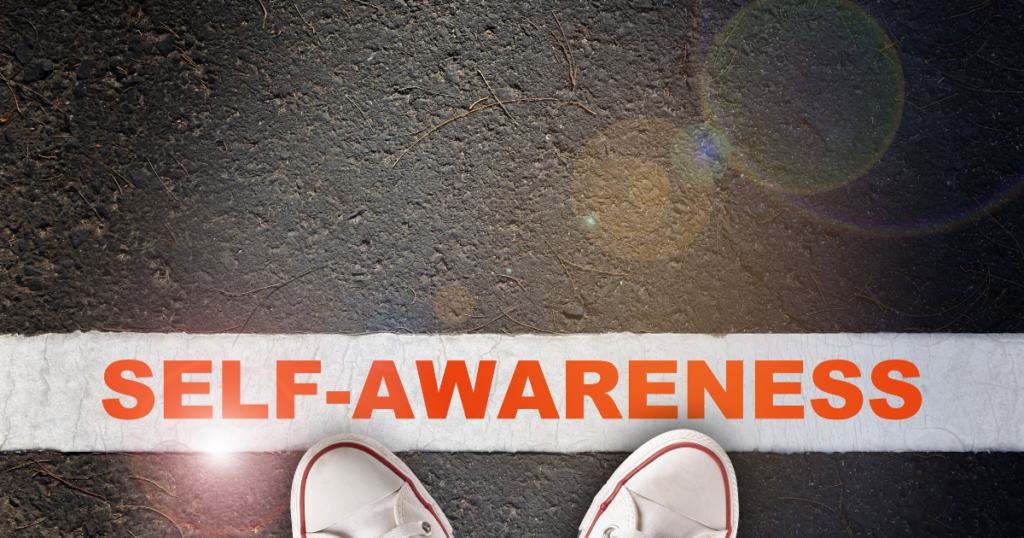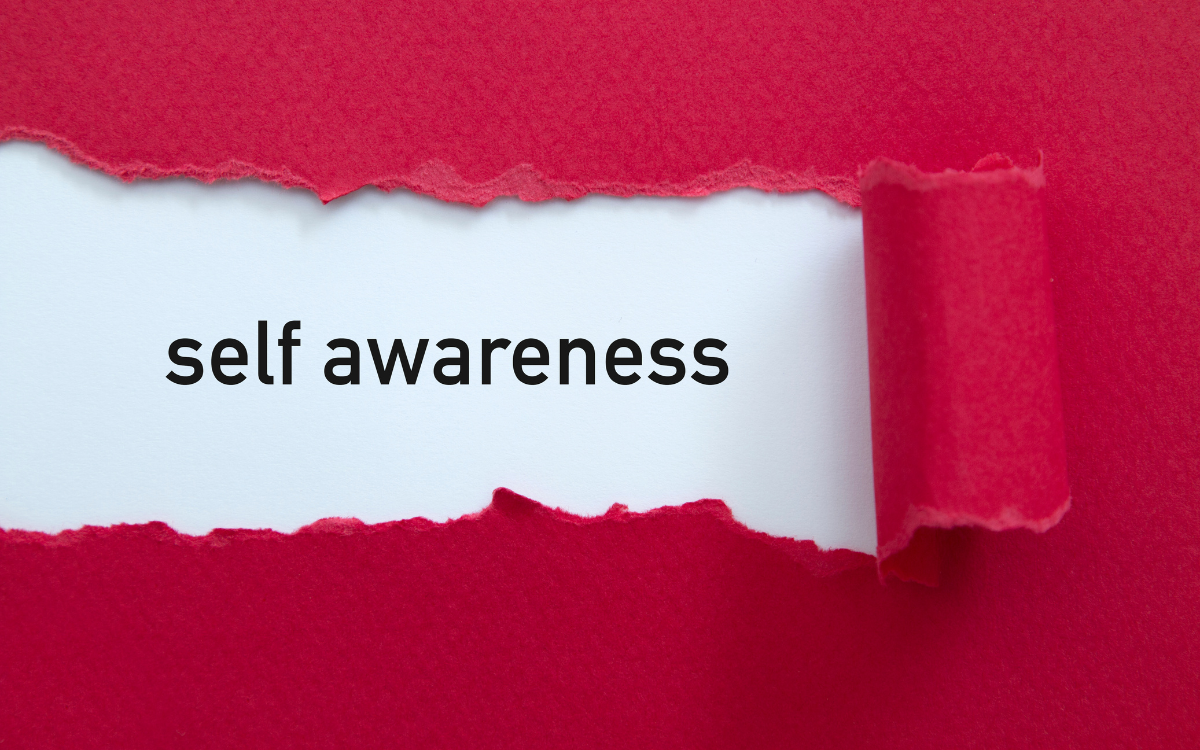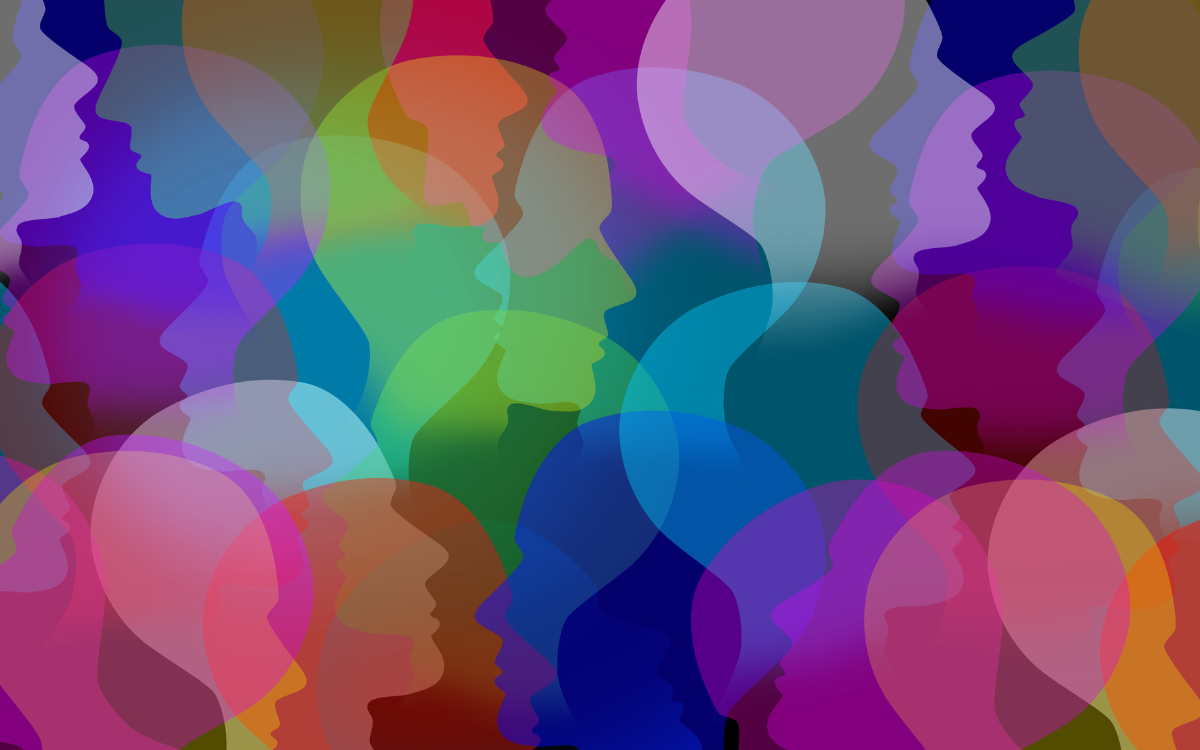Do you ever feel like you’re on autopilot, going through the motions of life without really understanding why? Do you struggle to identify your emotions or understand how they impact your actions?
If so, you may be lacking in self-awareness. But don’t worry, cultivating self-awareness is a powerful tool that can help you better understand yourself, your motivations, and your impact on the world around you.
In this article, we’ll explore the different types of self-awareness, the role it plays in personal growth, and how you can cultivate it both internally and externally.
So, let’s dive in and discover the power within: cultivating self-awareness.
Key Takeaways
- Self-awareness is crucial for personal growth, better decision-making, stronger relationships, and a more fulfilling life.
- Techniques for cultivating self-awareness include mindfulness, meditation, journaling, and seeking feedback from others.
- There are different types of self-awareness, including emotional, intellectual, and physical.
- Self-awareness can improve decision-making, relationships, personal growth, and confidence, but developing it requires a willingness to confront uncomfortable truths and engage in self-reflection.
Understanding Self-Awareness
You may have heard the term ‘self-awareness’ thrown around, but what does it really mean?
What Is Self-Awareness?
Self-awareness is a cognitive process that allows you to understand your own thoughts, emotions, and actions. It means being conscious of your strengths, weaknesses, beliefs, motivations, and desires.
With self-awareness, you become better at understanding others and how they perceive you. It’s essential in personal development since it can help you make changes and improvements based on self-knowledge.
People who are self-aware typically have higher emotional intelligence as they can control their reactions better, leading to better decision-making and interpersonal relationships.
The Importance of Self-Awareness
- Understanding Strengths and Weaknesses: Self-awareness allows individuals to understand their own strengths and weaknesses, empowering them to capitalize on their strong points while working on areas that need improvement.
- Improving Relationships: When one is self-aware, they can understand how others perceive them. This understanding can significantly improve interpersonal relationships both personally and professionally.
- Boosting Confidence: By being aware of one’s abilities and limitations, one can develop higher confidence levels, leading to increased motivation and better performance in different life spheres.
- Enhancing Emotional Intelligence: Self-awareness forms the foundation of emotional intelligence. It allows us to recognize our emotions as they occur, understand why we’re experiencing them, and manage them effectively.
- Facilitating Decision-Making: Self-aware individuals tend to make more informed decisions as they have a good understanding of their values, goals, personality traits, motivations, etc.
- Promoting Personal Growth: Through self-awareness, individuals can identify areas where growth or change is needed. It acts as a guide towards personal development and self-improvement.
- Increasing Job Satisfaction: Being self-aware helps individuals align their career choices with their personal skills and interests. This alignment often leads to greater job satisfaction.
- Managing Stress Better: With self-awareness comes the ability to identify stress triggers in your life. You can then devise strategies to deal with these potential stressors proactively rather than reactively.
- Promoting Mental Health: Self-awareness has been linked with improved mental health as it encourages introspection and mindfulness, which are key factors in managing depression, anxiety disorders, etc.
Types of Self-Awareness
You may be surprised to learn that there are different types of self-awareness, each with its unique benefits.
Emotional Self-Awareness
Emotional Self-Awareness is the ability to recognize and understand one’s own emotions. This involves being aware of how they manifest, their triggers, as well as the impact they have on one’s thoughts, behaviors, and interactions with others.
Key points about Emotional Self-Awareness include:
- Identification of Emotions: Recognizing what emotions you are experiencing is a crucial first step. These could be happiness, sadness, anger, surprise, or any other emotion from a wide spectrum of human feelings.
- Understanding Emotional Triggers: It’s important to know what events or situations trigger specific emotions within you. This understanding helps one to manage reactions and respond effectively in different circumstances.
- Recognizing The Impact: Understanding how your emotions can affect your thoughts and actions is essential. For example, does anger lead to impulsive decisions? Does fear make you overly cautious?
- Managing Emotions: With emotional self-awareness comes the ability to regulate emotional responses. You can allow yourself to feel without letting these feelings control your actions.
- Positive Relationships & Communication: Being emotionally self-aware also aids in fostering positive relationships as it improves communication skills. You’re better able to express your feelings and understand the feelings of others.
Intellectual Self-Awareness
Intellectual self-awareness isn’t just about knowing what you know. It’s also about understanding what you don’t!
You’re likely curious and open-minded, always keen to learn new things. You value your abilities and knowledge but are equally aware of your limitations.
Recognizing these aspects forms the core of intellectual self-awareness. Here’s a quick peep into its key elements:
- Knowledge: You’re conscious of what you know.
- Ignorance: You understand areas where you lack knowledge.
- Curiosity: Your quest for learning never ceases.
- Open-Mindedness: Different perspectives interest you.
- Humility: Despite your knowledge, arrogance doesn’t cloud your judgment.
Physical Self-Awareness
Understanding your body is like learning a new language. It’s about developing physical self-awareness – noticing the way your body feels and moves and understanding how these sensations affect your mind and emotions.
You can do this by:
- Tuning into sensory perceptions: Pay attention to the signals your body sends you. Whether it’s tension in your neck or a racing heart, these sensations are clues to how you’re feeling.
- Exploring movements: Notice how different actions make you feel. This could be as simple as stretching in the morning or how you react when startled.
These practices form the cornerstone of self-awareness. They’re about more than just being aware of physical discomfort – they allow you to connect with yourself on a deeper level.
To further enhance this connection, consider embodiment practices like yoga or dance. These exercises not only improve your physical health but also help you better understand and listen to your body.
The Role of Self-Awareness in Personal Growth
As you continue to cultivate your self-awareness, you’ll discover that it plays a critical role in your personal growth.
Self-Awareness and Emotional Intelligence
Developing your emotional intelligence is all about nurturing your self-awareness. This involves understanding and properly managing your emotions. It’s like becoming the master of your own mind, enhancing not just personal growth but also the relationships around you.
Here are some key elements you should focus on:
- Self-Awareness: Recognize patterns in your behavior, identify emotional triggers, and learn to respond proactively instead of reactively.
- Empathy: Understand the feelings and perspectives of others with kindness and compassion.
- Emotion Management: Control your emotions rather than letting them control you.
- Social Awareness: Be aware of social dynamics and respect diverse viewpoints.
- Self-regulation: Keep calm under pressure, express yourself effectively, avoid impulsive decisions, and cope with change smoothly.
- Building Resilience: Build resilience to recharge during difficult times and bounce back from challenges quicker.
By developing these skills, you’ll be better at handling emotions in a healthier way.
Self-Awareness in Decision Making
Understanding the connection between self-awareness and emotional intelligence is important. Now, let’s also dive into how self-awareness specifically influences decision-making.
Here’s what you need to know:
- Mindful decision-making plays a key role in developing self-awareness. This process calls for reflection on your personal values. It also prompts you to understand how these values shape your choices.
- You need to identify and overcome cognitive biases – they can fog your judgment and lead to less-than-optimal decisions.
- Yet, self-awareness isn’t just about making objective decisions; it also involves a good measure of self-compassion.
Self-Awareness in Personal Relationships
If you want to have healthy and fulfilling personal relationships, it’s important to be aware of your own emotions and how they may impact those around you.
Self-awareness in personal relationships is fundamentally about understanding your own emotions, needs, desires, habits, and responses.
It’s like holding up a mirror to your inner self. Being self-aware means, you’re conscious of your strengths and weaknesses, which can help you navigate interactions in relationships more effectively.
Self-awareness plays a critical role in communication, conflict resolution, empathy, and emotional intelligence. It allows you to:
- Understand how your actions impact others.
- Handle conflicts better by being aware of triggers.
- Build deeper connections through empathy.
- Foster healthier and more fulfilling relationships.
Self-Awareness in Setting and Achieving Goals
You’ve got what it takes to reach your dreams and feel satisfied. But first, you need to understand your strengths and weaknesses. It’s okay – we all have them!
Setting clear intentions is crucial. Knowing what you want to achieve is the starting line in your race toward success:
-
- Start by setting clear goals.
- Keep track of your journey using a journal or an app.
- If you’re feeling stuck or unmotivated, don’t hesitate to ask for help or partner up with someone.
- Obstacles? They’re just learning opportunities in disguise.
And remember, even the smallest steps forward are still progress. When you meet a goal (and I believe you will!), don’t forget to celebrate! Your hard work and effort deserve recognition. Use that uplifting energy to propel you onto your next goal.
Building Self-Awareness: Internal Factors
To build self-awareness, you must look within yourself and explore your internal factors. Take the time to focus on these practices and watch your self-awareness grow.
Reflection and Introspection
Through reflection and introspection, you can gain a deeper understanding of yourself and your actions.
- Self-reflection involves taking the time to examine your thoughts, emotions, and behaviors to better understand why you react or respond in certain ways.
- Introspective inquiry involves asking yourself questions to uncover your beliefs, values, and motivations.
- Self-examination involves looking inward to identify your strengths and weaknesses, and personal contemplation involves reflecting on your past experiences to gain insight into your present situation.
- Inner exploration involves delving into your subconscious mind to uncover hidden patterns and beliefs that may be holding you back.
Mindfulness and Meditation
Ever wish you were more in tune with your thoughts and feelings? Mindfulness and meditation can be your gateway to understanding yourself better. It’s all about creating a sense of peace from within and feeling grounded. Let’s break down how to get there:
- Mindful Breathing: By simply focusing on your breath, you’ll find it easier to shut out distractions. This practice lets you concentrate on the present moment, allowing for a deeper connection with yourself.
- Guided Meditation: This tool lets you explore various aspects of your psyche under the careful guidance of an expert or recording.
- Body Scan: Ever thought about what each part of your body is feeling? A body scan helps you tap into those subtle sensations by guiding you to focus attention on different parts of your body.
- Visualization Practices: Unleash your imagination! These practices help stimulate creativity as they guide you in forming mental images.
- Walking Meditation: Rather than sitting quietly, this form of meditation lets you focus on the sensation of walking—the movement, the contact between foot and ground—to connect dynamically with the here and now.
Journaling
Boost your self-understanding by regularly journaling. It’s like having a personal chat with yourself. Reflective writing is an extremely powerful tool that invites you to dive deep into your thoughts and emotions, revealing your inner world piece by piece.
Have you tried bullet journaling? This trending style organizes your thoughts visually, letting creativity flow.
But don’t stop there! Make an effort to incorporate a gratitude practice into your daily routine. Here are some steps to get you started:
- Start Small: Look for one thing each day you’re grateful for.
- Write it Down: Record this in your journal.
- Reflect: Consider why this particular thing made you feel grateful.
Doing so can shift your focus from life’s hurdles to its blessings, cultivating a deeper appreciation for what truly matters in life.
Seeking Feedback from Trusted Individuals
Embracing personal growth often hinges on the willingness to accept constructive criticism. The value of a supportive network that provides honest feedback simply cannot be overstated.
It’s a brave step, asking for feedback but viewing it through the lens of a growth mindset can catalyze remarkable improvements. Here’s how you can approach it:
- Seek out people who genuinely desire your success,
- Look for those who can deliver constructive criticism in a positive and helpful manner.
Sometimes, hearing feedback that pushes against your current beliefs or behaviors isn’t easy. Despite this,
- Keep an open mind,
- Be ready to listen and learn.
These changes are bound to bring about tremendous transformations on your personal growth journey.
Building Self-Awareness: External Factors
As you continue to build your self-awareness, it’s important to also consider external factors that can contribute to your understanding of yourself.
Understanding Others’ Perceptions
Understanding how others perceive you can be a game-changer in navigating social scenarios and forging robust relationships. To achieve this, there are key skills you need to hone:
- Empathy Practice: This is about putting yourself in others’ shoes, feeling what they’re feeling. It’s not just about sympathizing; it’s about connecting with others on a deeper level.
- Perspective-Taking: By viewing situations from others’ viewpoints, you gain invaluable insight into their perceptions of you. This is crucial to identify any blind spots and areas where you might need to improve.
- Active Listening: Truly understanding others requires more than just hearing them – it requires active listening. Be present and fully engaged in the conversation to appreciate their perspective better.
- Social Intelligence: This involves being aware of your surroundings and understanding social cues. It’s all about reading the room and adjusting your behavior accordingly.
Remember, these skills work together! Allowing empathy to guide your perspective-taking helps enhance your active listening and social intelligence abilities.
By honing these abilities, you become equipped to navigate conflicts effortlessly and foster meaningful connections with those around you.
Personality Tests and Assessments
Diving into the world of personality tests and assessments can reveal intriguing aspects about yourself that you might not have previously considered. It’s akin to embarking on a journey of self-discovery! Here are four essential components to consider as you approach this exploration:
- Pros and Cons: Yes, personality tests are great tools for gaining insight into your unique traits and behaviors. However, they do come with their own set of caveats. Remember, they’re not the be-all and end-all source of self-understanding.
- Validity and Reliability: Not all personality assessments carry equal weightage. It’s crucial to opt for those that boast scientific validation and a consistent track record when it comes to accuracy.
- Popular Assessments: The universe of personality tests is vast indeed! A few well-regarded ones include Myers-Briggs, DISC, and the Big Five. Each of these sheds light on different facets of your personality – your strengths, areas needing improvement, and much more.
- Self Discovery and Career Planning: Uncovering the nuances of your personality isn’t just a fascinating exercise; it also carries practical implications. By understanding yourself better, you can make more informed career decisions leading toward a fulfilling life.
Seeking Professional Help (Counseling or Coaching)
Taking a deeper dive into the mysteries of your persona? Personality tests and assessments have already given you a peek, but for a more profound understanding, professional help is key. You might consider counseling or coaching, an avenue often associated with stigma.
But remember – it’s not a sign of weakness. On the contrary, it demonstrates your strength and courage to face challenges head-on.
Counseling or coaching sessions offer you the following:
- Insights: A trained professional can identify patterns you may overlook.
- Guidance: They can channel your energy towards achieving your personal goals.
- Safe Environment: Professionals create a non-judgmental space for you to express yourself.
Choosing the right coach or counselor is important. You want someone who is aligned with the following:
- Your comfort level
- Your values
- Your goals
Remember, this journey into self-exploration is all about you!
Self-Awareness and Leadership
The synergy of self-awareness and leadership is a dynamic duo that can revolutionize any workspace. Let’s explore how the power of introspection, when mixed with the influential role of a leader, can induce unmatched productivity and harmony in an organizational setting.
The Value of Self-Aware Leaders
Being a self-aware leader enhances your ability to connect with others. It helps you better understand their viewpoints, allowing you to make decisions that are informed and unbiased. Recognizing your own biases is key to this.
- Understand Your Biases: Be aware of how they could potentially influence your choices. This helps in making more balanced decisions.
- Identify Your Strengths and Weaknesses: Use these insights for effective task delegation.
- Resolve Conflicts Efficiently: Apply empathy and emotional intelligence during disagreements or conflicts for smooth resolutions.
- Know Your Personal Values/Beliefs: Lead with integrity by aligning actions with personal values; this earns trust from those around you.
How Self-Awareness Enhances Leadership Skills
Being a leader demands more than just possessing the right skills, it requires self-awareness. This is a deep understanding of your strengths, weaknesses, emotions, beliefs, and motivations.
Your self-awareness helps you to recognize how others perceive you and understand their reactions toward your actions. When you’re aware of all these aspects, you can make better decisions, communicate more effectively and manage conflicts wisely.
Moreover, self-awareness allows leaders to be authentic, adapt to change easily, and foster trust in their teams. In essence, every good leader needs a solid foundation of self-awareness to inspire and lead others successfully.
To help develop self-awareness:
- Regularly get feedback from team members
- Practice mindfulness and reflection
- Participate in leadership training programs or coaching
- Keep learning about yourself (your triggers, biases, etc.)
Barriers to Self-Awareness
You may think you know yourself pretty well, but there are several barriers that can prevent you from truly seeing yourself. Overcoming these barriers is crucial to developing deep self-awareness and becoming an effective leader.
Self-Deception and Denial
It’s pretty easy to get caught in the illusion that you’re always right, isn’t it? After all, who wants to admit they’ve made a mistake? It feels safer to sweep those errors under the rug and maintain a flawless image. But here’s the thing – ignoring your flaws or denying your mistakes can lead you down a slippery slope of self-deception.
And when self-deception takes hold, wham! You find yourself stuck with an unrealistic view of who you really are. This warped perception can blindside you from seeing areas where improvement is necessary.
Sure, this kind of denial might be a nice defense mechanism – it shields your ego from potential damage, after all. But ironically, it ends up being more harmful than helpful. Here’s why:
Self-deception stifles growth: When you’re constantly in self-denial mode, reaching your full potential becomes an uphill battle.
Cognitive Biases
Sometimes we make decisions based on cognitive biases, which can lead us astray without us even realizing it.
- Confirmation bias is when we seek out information that confirms our beliefs rather than considering alternative viewpoints.
- The anchoring effect is when we rely too heavily on the first piece of information we receive when making a decision without considering other relevant information.
- The availability heuristic is when we make decisions based on information that is easily accessible or readily available in our minds but may not be representative of the actual situation.
- The framing effect is when the way information is presented influences our perception and decision-making.
- The illusion of control is when we overestimate our ability to control a situation, leading us to make decisions based on false assumptions.
Emotional Avoidance
Going through tough emotions isn’t exactly a walk in the park, but shying away from them might put your mental health and wellness on the line. It’s only natural to want to push those unpleasant feelings under the rug, but it’s crucial that you face them head-on.
Here are some reasons why sidestepping your emotions could backfire big time:
- Physical Symptoms: Bottling up your emotions might manifest as headaches, stomachaches, or fatigue. Your body has its own unique way of telling you something’s off.
- Resurfacing Emotions: Those hidden emotions have a knack for popping up when least expected – and often with more intensity.
- Impaired Emotional Intelligence: Dodging feelings can stunt your emotional intelligence growth, making it trickier to recognize and convey your emotions effectively.
- Unhealthy Coping Mechanisms: Substance abuse or overeating could sneakily become your go-to strategy for avoiding emotions.
- Stunted Personal Growth: By suppressing feelings, you’re missing out on understanding and processing life experiences fully, which hampers personal development.
Lack of Feedback
Feedback is the fuel that propels personal and professional growth. Without it, you might find it difficult to evolve and tap into your full potential. Overcoming a feedback deficit might seem daunting, but remember, asking for feedback is key.
Silence can be golden, but in the context of feedback, it could signal various scenarios:
- Your work is impeccable.
- Your work requires improvement, but people hesitate to provide constructive criticism.
It’s crucial to address this silence because misinterpreting these cues can lead to frustration. Remember that everyone communicates differently, so dealing with ambiguity constructively is part of the process.
Overcoming Barriers to Self-Awareness
You’ve identified the barriers to self-awareness, and now it’s time to explore strategies for overcoming them.
By putting these strategies into practice, you can break down the barriers holding you back and cultivate a stronger sense of self-awareness.
Strategies for Honest Self-Assessment
Unearthing your blind spots and expanding as a person calls for an intense, introspective journey. It’s time to highlight the significance of critical self-examination.
Here are some resources valuable for nurturing self-awareness:
- Self-reflection techniques
- Honest self-evaluation methods
- Self-awareness exercises
- Effective self-assessment tools
Remember, it’s not always cozy confronting our imperfections and vulnerabilities. Trust me, it’s a pivotal part of personal development.
By identifying our deficits, we unlock the door to improving ourselves, molding ourselves into enhanced versions.
It’s crucial you approach this process with an open heart and a readiness to learn. And remember, self-awareness isn’t a one-stop shop; it’s more like an adventurous trek that demands consistent effort and reflection.
Recognizing and Overcoming Biases
Overcoming biases is not just beneficial but imperative for fostering a more objective and inclusive perspective. Our unconscious prejudices subtly influence our perceptions and decisions, often resulting in us making unfounded assumptions or leaning on stereotypes without even recognizing them.
To counteract these covert biases, we need to rigorously question our ingrained beliefs and courageously entertain alternative viewpoints. While it could be uncomfortable probing into our own biases, the process offers invaluable insights about ourselves and enriches our understanding of the world around us.
Recognizing and rectifying biases helps to cultivate an enhanced level of self-awareness and enables us to become more empathetic towards others. Therefore, investing time in introspection of your own biases, challenging your preconceived notions, and opening yourself up to diverse perspectives – is indeed a journey that’s worth undertaking.
Here are some actionable steps you can take:
- Awareness: Recognize that everyone has biases.
- Reflection: Identify your own specific biases.
- Questioning: Challenge your pre-existing beliefs.
- Empathy: Try to understand different perspectives.
Encouraging and Receiving Feedback
Seeking feedback can be enlightening and pivotal to your growth, both personally and professionally. It’s critical that you foster a culture of feedback where it’s seen not as criticism but as an essential tool for development.
Certainly, constructive criticism can be tough to swallow, yet with an open mind and learning-focused attitude, you’d be surprised at the improvements achievable.
Effective Feedback Techniques:
- Request specific examples: General feedback may leave you puzzled but specific instances will provide clarity on what needs improvement.
- Focus on behaviors rather than personality traits: This helps prevent defensiveness and encourages productive dialogues about changes in behavior.
Feedback shouldn’t be a cause of anxiety. Instead, view it as an opportunity for enhancing self-awareness, fueling growth, and paving the way for success and fulfillment in all areas of your life.
Accepting and Processing Emotions
Mastering the art of accepting and processing emotions is a fundamental aspect of maintaining your mental health and emotional well-being. At times, it can feel challenging to confront our feelings directly; however, doing so empowers us to better understand and manage them.
Emotional regulation, a cornerstone of this process, involves two main steps:
- Recognizing and accepting our feelings: This means giving ourselves permission to experience our emotions as they come, without judgment or dismissal.
- Identifying healthy coping mechanisms: Once we’ve acknowledged our feelings, we can employ effective strategies that help us navigate through them.
Between these steps lies the valuable practice of self-compassion. By treating ourselves with kindness during moments of emotional distress, we foster a supportive inner environment that facilitates emotional processing.
Applying self-compassion may look like:
- Speaking kindly to oneself
- Recognizing that experiencing challenges is part of being human
- Maintaining a balanced perspective on negative emotions
When you allow yourself to truly feel your emotions and express them in constructive ways, you pave the path towards deeper self-understanding and insight into your needs.
It’s essential to remember that navigating your emotional landscape is a journey—an ongoing process rather than an end goal. And sometimes, seeking assistance along this journey by asking for help is not just okay—it’s an act of courage and strength.
Maintaining Self-Awareness
Self-awareness is an empowering tool that helps you understand your own mind and how to use it effectively. It’s a journey of discovery where you learn about your strengths, weaknesses, emotions, and motivations. This section will delve into maintaining this crucial trait and utilizing it for personal growth and success. Let’s get started.
Regular Check-Ins with Self
Regular self-check-ins are integral to enhancing your self-awareness. By dedicating time each day to really tune into your thoughts and emotions, you can understand yourself on a deeper level.
Consider these practices:
- Daily Reflection: Contemplate on your daily experiences, responses, and feelings.
- Self-Awareness Exercises: Engage in activities designed to help you recognize patterns or tendencies.
- Mindfulness Practices: Focus on the present moment without judgment to gain deeper insight into your emotions and reactions.
- Cultivating Self-Awareness Habits: Develop consistent routines that encourage introspection.
Each of these methods aids in recognizing what triggers certain emotions or behaviors. They provide clarity about your beliefs, values, and motivations. This understanding equips you to make more intentional decisions that align with who you truly are.
By maintaining this practice consistently, you’ll notice significant benefits like:
- Improved self-confidence: Understanding yourself improves self-assuredness and empowers you to embrace who you are.
- Enhanced decision-making abilities: The more aware you are of your own biases and habits, the better equipped you are to make informed choices.
- A more fulfilling life: When actions align with inner values, it nurtures a sense of fulfillment.
Continuing Feedback
Regular self-reflection is a powerful tool for fostering personal growth, but feedback from others is equally critical. Feedback provides an alternate perspective and can illuminate areas where you could improve.
Choosing the right feedback technique can significantly affect how feedback is received. Let’s delve into two such strategies:
- The Sandwich Method: This approach curtails negative reactions to criticism by bookending it with positive feedback.
- You start off with a positive comment, which sets an encouraging tone.
- Next, you deliver constructive criticism that pinpoints areas for improvement.
- Finally, you wrap up with additional positive comments to reaffirm your confidence in their abilities.
- 360-Degree Feedback: This comprehensive method provides a balanced view of performance by gathering feedback from multiple sources.
- It could be from supervisors, peers, subordinates or even customers.
- The more varied the sources, the broader and more balanced the perspective.
By effectively utilizing these strategies, you’re not just promoting self-awareness but also fostering open communication and continuous learning within your personal or professional surroundings. The goal isn’t to criticize but to highlight opportunities for growth and success.
Lifelong Learning and Growth
Embrace the constant journey of learning and growth; it’s an integral part of your life. Dive into new ideas, immerse yourself in fresh experiences, and always strive to evolve into an improved version of yourself.
The concept of continuous self-improvement serves as a cornerstone for both self-discovery and personal development. It encourages curiosity, perseverance, and resilience as you navigate through life’s varied landscapes.
Take mindful moments to reflect on your experiences – they are valuable teachers in this lifelong quest. Use introspective techniques such as:
- Journaling
- Meditation
- Seeking feedback from others
These can help pinpoint aspects that need polishing or areas ripe for growth.
Cultivate a growth mindset, which helps you perceive challenges not as obstacles but as golden opportunities for learning and evolving. This mindset propels you toward improvement, fostering resilience in the face of adversity.
Remember, the journey towards self-betterment is not a sprint but a marathon – it spans across your entire lifetime. Each stride towards becoming the best version of yourself counts significantly.
Strive to stretch beyond your comfort zone routinely—it’s where true growth lies. Learn from every stumble or fall; they’re stepping-stones that pave the way for progress.
In this voyage of personal development:
- Explore novel paths
- Absorb new knowledge
- Refine your skills
Each step taken is one closer towards unveiling an improved version of yourself.













